Introduction to Abortion in India


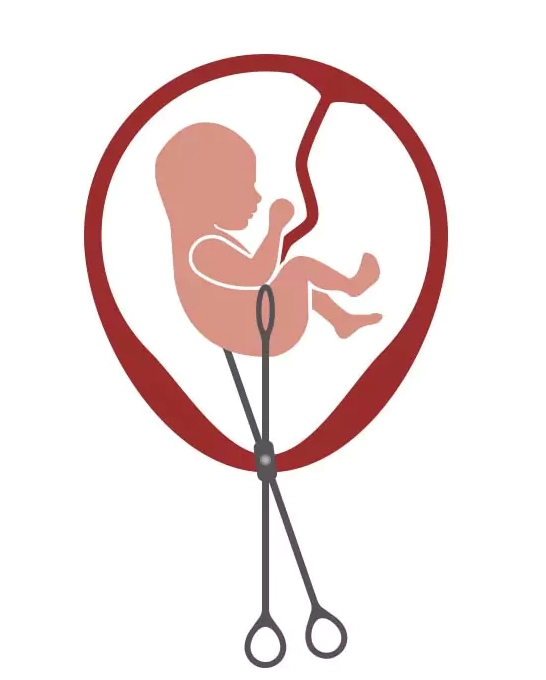


Legal Aspects of Abortion in India
-
The Medical Termination of Pregnancy Act
The MTP Act was promulgated with the intent to reduce the incidence of illegal and unsafe abortions and to provide a legal and safe avenue for women seeking termination of pregnancy under specific conditions. This law outlines when and how an abortion can be legally performed in India.
-
Key Provisions of the MTP Act
-
Gestational Limit:
The MTP Act originally allowed for abortions to be performed up to 20 weeks of gestation. However, the MTP Amendment Act of 2021 extended this limit up to 24 weeks for certain categories of women, including survivors of rape, victims of incest, and other vulnerable women (like differently-abled women and minors), subject to the opinion of a state-level medical board.
-
Consent:
The act requires the consent of the pregnant woman for the procedure. In the case of minors (below 18 years) and mentally ill women, the consent of a guardian is mandatory.
-
Reasons for Abortion:
Abortion is permissible if there is a risk to the life of the woman or of grave injury to her physical or mental health, if the child would suffer from serious physical or mental abnormalities, or in the case of contraceptive failure (applicable to married couples, extended to all women in the 2021 amendment).
-
Practitioners and Facilities:
The procedure must be performed by a licensed medical practitioner at a place recognized and approved under the Act.
-
Role of Medical Practitioners
The MTP Act mandates that abortions be performed only by registered medical practitioners who meet certain requirements laid out in the Act. The act stipulates stringent penalties for anyone performing illegal abortions, including imprisonment.
-
Conscientious Objection
The MTP Act does not address the right of medical practitioners to conscientiously object to performing abortions. However, they are ethically bound to refer the case to another qualified practitioner.
-
Judicial Rulings and Interpretations
Courts in India have played a significant role in interpreting the MTP Act, especially in cases where there has been a need for medical termination beyond the gestational limit prescribed by the law. Such rulings often set precedents and sometimes push for changes and updates in the legislation.
-
Societal and Ethical Considerations
Despite the clarity of the law, societal and personal ethics often influence decisions regarding abortion. Healthcare providers and patients alike must navigate these complex waters, balancing legal rights with personal beliefs.
-
The MTP (Amendment) Act 2021
This amendment aimed to increase access to safe and legal abortion services, extend the gestational limit, and enhance the confidentiality of the process, thereby reinforcing the reproductive rights of women.
Medical Aspects of Abortion in India
Methods of Abortion:

Medical Abortion:
- This method uses medications to terminate a pregnancy and is typically used up to 9-10 weeks of gestation.
- It involves a combination of two drugs: Mifepristone, which blocks the hormone progesterone necessary to maintain the pregnancy, and Misoprostol, which induces uterine contractions to expel the pregnancy tissue.
- It is a non-invasive procedure that can often be done at home, but follow-up with a healthcare provider is essential.
Surgical Abortion:
Vacuum Aspiration: Up to 12-14 weeks of gestation, vacuum aspiration is the most common method. It involves the use of gentle suction to remove the contents of the uterus.
Dilation and Evacuation (D&E): For pregnancies in the second trimester (up to 20-24 weeks), D&E is usually performed. This involves dilating the cervix and removing the pregnancy tissue using suction and surgical instruments.
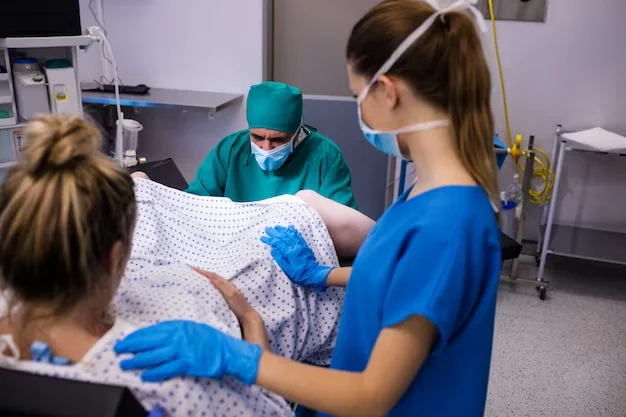
Pre-Abortion Evaluation
-
Medical Assessment:
A thorough medical assessment is conducted to confirm the pregnancy, establish gestational age, and detect any potential health concerns.
-
Ultrasound:
An ultrasound may be performed to confirm the gestational age of the embryo or fetus and to rule out ectopic pregnancy.
-
Blood Tests:
Blood tests might be done to check for anemia, blood type, and to ensure there are no contraindications to the procedure.
-
Counseling:
Counseling is provided to ensure informed consent and to discuss the procedure, risks, and follow-up care.
Post-Abortion Evaluation
-
Monitoring:
After an abortion, women are monitored for a short period to ensure there are no immediate complications, such as excessive bleeding or infection.
-
Medication:
Antibiotics may be prescribed to prevent infection, and medications to manage pain may be recommended.
-
Follow-Up:
A follow-up visit is typically scheduled a few weeks after the procedure to ensure the abortion is complete and to check the woman's overall health.
-
Supports Facial Structures
Dental implants prevent the facial sagging and premature aging that often occur with tooth loss and the resultant bone loss.
-
Psychological Benefits
The psychological impact of dental implants can be profound as they restore the ability to bite, chew, and speak with ease, along with restoring a natural smile, thus boosting self-esteem and confidence.
Complications:
While abortion is generally a safe procedure, potential complications might include:
● Infection
● Excessive bleeding
● Incomplete abortion, which may require further medical intervention
● Damage to the cervix or uterus in rare cases
Emphasis on Safety and Confidentiality:

Considering Abortion in India
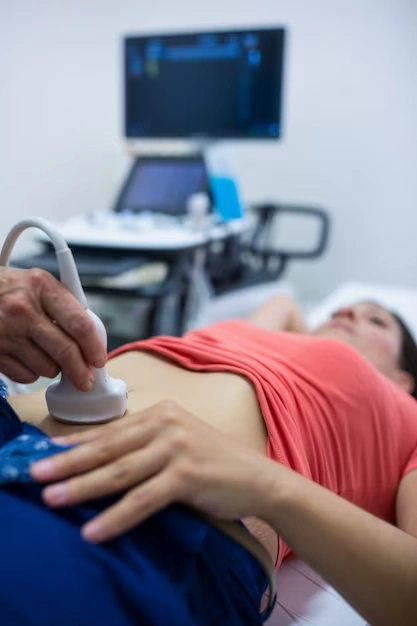

-
Understanding Your Options
-
1. Confidentiality:
The Indian law ensures the confidentiality of the patient. Women considering abortion should know that their privacy will be protected.
-
2. Counseling:
Counseling services are available and can help a woman understand her feelings, the options available, and the implications of the decision, including the emotional and psychological aspects.
-
3. Informed Decision:
It's vital to understand all aspects of the procedure, including the potential risks and emotional impact. The decision should be voluntary and well-informed.
-
4. Legal Time Frame:
In India, abortion can be legally performed up to 20 weeks under specific conditions. Recent amendments to the MTP Act have proposed extending this to 24 weeks for certain categories of women, but it's essential to stay updated with the current legal provisions.
-
5. Consider Your Health:
The decision should also be based on your health status. Certain health conditions can complicate the pregnancy and the procedure.
-
6. Discuss with a Healthcare Provider:
It is crucial to discuss with a certified healthcare provider who can guide you through the legal and medical process of abortion in India.
-
7. Understanding the Process:
Knowing the steps involved in the abortion process, the types of procedures available, and what to expect can help in making an informed decision.
-
8. Support System:
Having a support system, whether it's family, friends, or a support group, can provide emotional comfort and assistance during and after the procedure.
-
9. Impact on Future Fertility:
Concerns about future fertility are common. Discuss these with your healthcare provider; most women can go on to have children in the future if they choose.
-
10. Financial Considerations:
Consider the costs involved and understand the financial implications, including whether your health insurance covers the procedure.
-
11. Mental Health:
The emotional impact of an abortion varies greatly from person to person. It may be helpful to plan for potential emotional aftercare, including counseling or therapy, if needed.
Access to Abortion Services in India
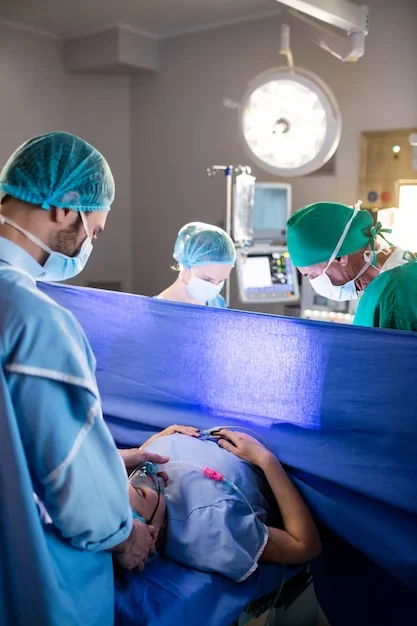
Navigating the System
-
1. Finding a Certified Clinic:
Access to safe abortion services is facilitated through certified clinics and hospitals that are legally permitted to perform the procedure. Women seeking an abortion should visit a registered medical practitioner or an approved medical facility.
-
2. Healthcare Provider Consultation:
A consultation with a qualified healthcare provider is essential. They can offer advice on the most appropriate method of abortion based on the duration of the pregnancy and the patient's health.
-
3. Understanding Legal Requirements:
It is crucial to understand the legal requirements for abortion in India, which may include mandatory counseling and waiting periods, as well as specific documentation.
-
4.Confidentiality Assurance:
Certified clinics must adhere to strict patient confidentiality protocols, ensuring that a woman's decision to undergo an abortion and her medical information are kept private.
Financial Assistance and Insurance
-
1. Government Schemes:
The Indian government has initiated health schemes to subsidize the cost of medical procedures, including abortion, for underprivileged sections of society.
-
2. Insurance Coverage:
Some health insurance policies may cover the cost of abortion services. It's essential to verify this with your insurance provider.
Ensuring Safe Access
-
1.Medical Facilities:
Quality medical facilities equipped to handle abortion procedures are important. This includes having trained staff, proper medical equipment, and facilities for follow-up care.
-
2. Rural and Urban Access:
Access to abortion services can vary between urban and rural areas. Efforts are ongoing to ensure rural populations have adequate access through primary healthcare centers and community outreach programs.
-
3.Awareness Programs:
Government and non-governmental organizations often conduct awareness programs to educate women about their reproductive rights and the availability of safe abortion services.
-
4.Telemedicine Services:
In light of technological advancements, telemedicine has become a vital tool in providing counseling and follow-up services, particularly in remote areas.
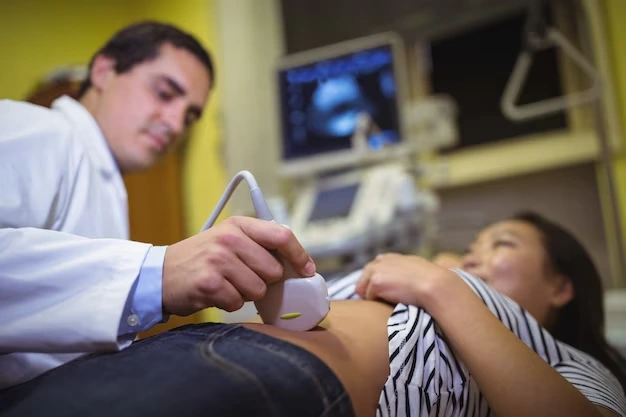
Post-Abortion Care
-
After the procedure, access to post-abortion care, including medical attention and psychological support, is vital to ensure the woman's well-being.
Community Support:
-
Various community groups and organizations provide support and aid to women seeking abortion services, offering assistance in navigating the system.
Helplines and Online Resources:
-
Helplines and online platforms can provide immediate answers and guidance on how to access abortion services safely.
The Abortion Process in India
Initial Consultation:
-
Counseling Session
Before proceeding with an abortion, a woman must attend a counseling session. This is to ensure that she is fully informed about the procedure, its risks, alternatives, and to provide emotional support.
-
Confirming Pregnancy
A healthcare provider will confirm the pregnancy with a test. The gestational age is determined, typically via an ultrasound, which is crucial in deciding the method of abortion.
-
Review of Medical History
The doctor reviews the woman’s medical history to identify any potential risks or contraindications for the procedure.
Choosing the Abortion Method:
-
Medical Abortion
For pregnancies up to 9 weeks, a medical abortion may be recommended. This involves taking two different medications, Mifepristone and Misoprostol, 48 hours apart, which induce a process similar to a miscarriage.
-
Surgical Abortion
For pregnancies beyond 9 weeks, surgical methods such as Vacuum Aspiration or Dilatation and Evacuation (D&E) are considered. These are minor surgical procedures to remove the pregnancy from the uterus.
The Abortion Procedure:
-
Medical Abortion
- Day 1:Mifepristone is administered orally at the clinic to block the hormone progesterone, causing the lining of the uterus to break down. - Day 3:The woman takes Misoprostol, either orally or vaginally, which causes the uterus to contract and expel the pregnancy. - Follow-up:A follow-up visit is scheduled after 1-2 weeks to ensure the abortion is complete and to check for complications.
-
Surgical Abortion:
Preparation:The woman may be given medication to help open the cervix and painkillers to manage discomfort.
After the Procedure:
-
Medical Evaluation
After an abortion, the woman undergoes a medical evaluation to ensure there are no immediate complications, such as excessive bleeding or infection.
-
Rest and Monitoring
She will be advised to rest for a certain period and to monitor for any adverse symptoms that might indicate complications.
-
Post-Abortion Care
The healthcare provider will discuss post-abortion care, including managing pain, what to expect during recovery, and when normal activities can be resumed.
Legal Documentation:
-
Abortion in India requires certain legal documentation, including consent forms and, in some cases, approvals depending on the gestational age and circumstances.
Support Services:
-
Emotional support and access to counseling services are provided for women post-abortion to address any psychological impact.
Follow-Up Care:
-
A follow-up visit is critical to ensure the woman's health and to provide contraceptives if desired
Confidentiality:
-
A follow-up visit is critical to ensure the woman's health and to provide contraceptives if desired
Risks and Complications of Abortion in India
Medical Abortion Risks
-
Incomplete Abortion
Sometimes, the abortion pill may not expel all the pregnancy tissue, which might require a follow-up surgical procedure.
-
Heavy Bleeding
Medical abortions can cause significant bleeding, more than a normal menstrual period. If the bleeding is too heavy or lasts for an extended period, it might indicate complications.
-
Infection
There is a small risk of infection in the uterus, which can cause fever, pain, and sometimes serious reproductive health problems if not treated promptly.
-
Failure of the Procedure
In rare cases, the abortion pill might fail to terminate the pregnancy, leading to the need for a surgical abortion.

Surgical Abortion Risks
-
Anesthesia-Related Complications:
General anesthesia, rarely used in abortions, carries its own risks, including allergic reactions or respiratory issues.
-
Injury to the Cervix or Uteru
Surgical instruments used in abortion can potentially cause injury to the cervix or perforation of the uterus, which might require further surgical repair.
-
Scar Tissue Formation
Procedures like a D&C can cause scarring in the uterus (Asherman's syndrome), leading to menstrual irregularities or fertility issues.
-
Hemorrhage
While rare, excessive bleeding can occur during or after the procedure.

General Complications
-
Emotional and Psychological Impact
Some women may experience emotional distress or psychological effects following an abortion. Counseling and support are crucial to address these aspects.
-
Future Fertility
While most women will retain their fertility after an abortion, complications like infection or scarring can affect future fertility.
-
Reproductive Tract Infections
not performed in sterile conditions, there's a risk of introducing bacteria into the reproductive tract, leading to infections.
-
Blood Clots in the Uterus
Clots can form within the uterus, leading to pain and prolonged bleeding.
-
Post-Abortion Syndrome
Some debate the existence of this syndrome, which is described as a form of PTSD, though it is not widely recognized by medical communities.
Prevention of Complications
-
To minimize the risks, abortions should be performed by qualified medical personnel in a certified healthcare facility with proper post-abortion care and monitoring.
Legal and Social Risks:
-
In India, social stigma and legal restrictions can also pose risks to women seeking abortions, such as delays in seeking services or resorting to unsafe procedures.
Post-Abortion Care and Support in India
Physical Care After Abortion:
-
1. Rest and Recovery
It is essential to rest as recommended by the healthcare provider, especially in the first few hours and days after the procedure.
-
2. Medication
Providers may prescribe antibiotics to prevent infection and pain relievers to manage discomfort.
-
3. Follow-Up Visits
A follow-up appointment is critical to ensure that the abortion was complete and to check the recovery process.
-
4. Monitoring Symptoms
Women need to monitor for any signs of complications, such as excessive bleeding, severe abdominal pain, or fever, and contact their healthcare provider if these symptoms occur.
-
5. Contraception and Family Planning
Healthcare providers should discuss contraceptive options to prevent unintended pregnancies in the future.
Emotional Support After Abortion:
-
1. Counseling Services
Professional counseling may be offered to address any emotional distress following an abortion.
-
2. Support Groups
Participation in support groups can help women connect with others who have had similar experiences.
-
3. Cultural and Spiritual Support
Considering India's diverse cultural and religious backgrounds, support tailored to cultural and spiritual needs can be significant.
-
4. Confidentiality
Ensuring the privacy and confidentiality of the woman’s health information is essential.
Educational Resources:
-
1. Health Education
Providing education on how to take care of oneself post-abortion, including information on hygiene, nutrition, and activity levels.
-
2. Risk Awareness
Educating women on recognizing potential complications and understanding when to seek medical attention.
Social Support:
-
1. Family and Friends
Encouraging support from family and friends can be beneficial for emotional recovery.
-
2. Social Services
Linking women to social services that can help with issues like domestic violence, economic hardship, or mental health problems.
Access to Services:
-
Ensuring that women have access to post-abortion services, regardless of where they live or their economic status.
Policy and Advocacy:
-
Advocacy for policies that support women's health and rights, and the improvement of post-abortion care facilities.
Cultural and Social Perspectives on Abortion in India
Cultural Context
-
Religious Views:
India is home to many religions, each with its own perspective on abortion. Hinduism, for instance, has diverse views but often considers the commencement of life at conception. Islam generally permits abortion if the mother's life is in danger, while in Christianity, views on abortion can vary significantly across different denominations.
-
Societal Stigma:
Despite legal allowances, abortion can be highly stigmatized, often associated with premarital sex or infidelity, which are taboo subjects in many Indian societies
-
Gender Roles::
Traditional gender roles may pressure women to bear children, sometimes at the expense of their own health and well-being.
Social Considerations
-
Sex-Selective Abortion:
A preference for male children has led to sex-selective abortions, despite laws against prenatal sex determination and selective abortion.
-
Family Pressure:
Decisions regarding abortion can be heavily influenced by family members, sometimes overriding the woman's personal choice.
-
Education and Awareness:
Levels of education and awareness about reproductive rights and health vary across different regions and communities, affecting how abortion is perceived and approached.
Impact of Stigma
-
Underreporting and Unsafe Practices:
Stigma can lead to underreporting and a reluctance to seek legal abortion services, driving some women towards unsafe methods.
-
Mental Health:
The social stigma attached to abortion can impact women's mental health, leading to feelings of guilt, shame, and isolation.
Support Systems
-
NGOs and Advocacy Groups:
Non-governmental organizations and women's rights groups play a critical role in providing support, advocating for change, and offering services.
-
Community Support:
Local community groups can sometimes provide a support network for women, helping them navigate the stigma and access services.
Legal and Policy Framework
-
The legal framework in India, while progressive in many ways, can be affected by cultural attitudes, leading to variations in the implementation of abortion services across the country.
Educational Initiatives
-
Efforts to educate the public about reproductive health and rights are essential in shifting perspectives and reducing stigma associated with abortion.
Cost and Insurance Coverage for Abortion in India
Cost Factors:
-
Type of Procedure:
Medical abortions, which involve the use of pills, are generally less expensive than surgical abortions.
Surgical abortions can range from vacuum aspiration procedures to more involved dilation and evacuation, with costs increasing with the complexity and risks associated with later stages of pregnancy.
-
Healthcare Facility:
Government hospitals may offer abortion services at a lower cost or even for free.
Private clinics and hospitals generally charge more, and the costs can vary significantly between them.
-
Location:
The cost of abortion can also differ based on the geographic location within India, with metropolitan cities often having higher rates than rural areas.
-
Additional Tests and Consultations:
Pre-abortion counseling, ultrasound scans, blood tests, and follow-up visits can add to the overall expense.
Insurance Coverage:
-
Health Insurance Policies:
Many health insurance policies in India do not cover elective abortions; however, if the abortion is medically necessary to save the woman's life or due to certain medical conditions, it may be covered.
It is vital to review one’s health insurance policy to understand the extent of coverage for abortion.
-
Government Schemes:
Certain government health schemes may cover abortion costs, particularly for low-income groups.
-
Employee Health Benefits:
Some employers may offer health insurance that covers abortion. Women can check with their employer's human resources department for information.
Out-of-Pocket Expenses:
-
In many cases, women may have to pay out of pocket for abortion services, which can be a barrier to accessing safe and legal procedures.
Financial Assistance:
-
NGOs and Charitable Organizations:
Some non-governmental organizations may provide financial assistance or subsidies for abortion services to those in need.
-
Community Health Insurance:
In some communities, local health insurance schemes, often run by NGOs or community organizations, may offer some coverage or aid for abortion services.

